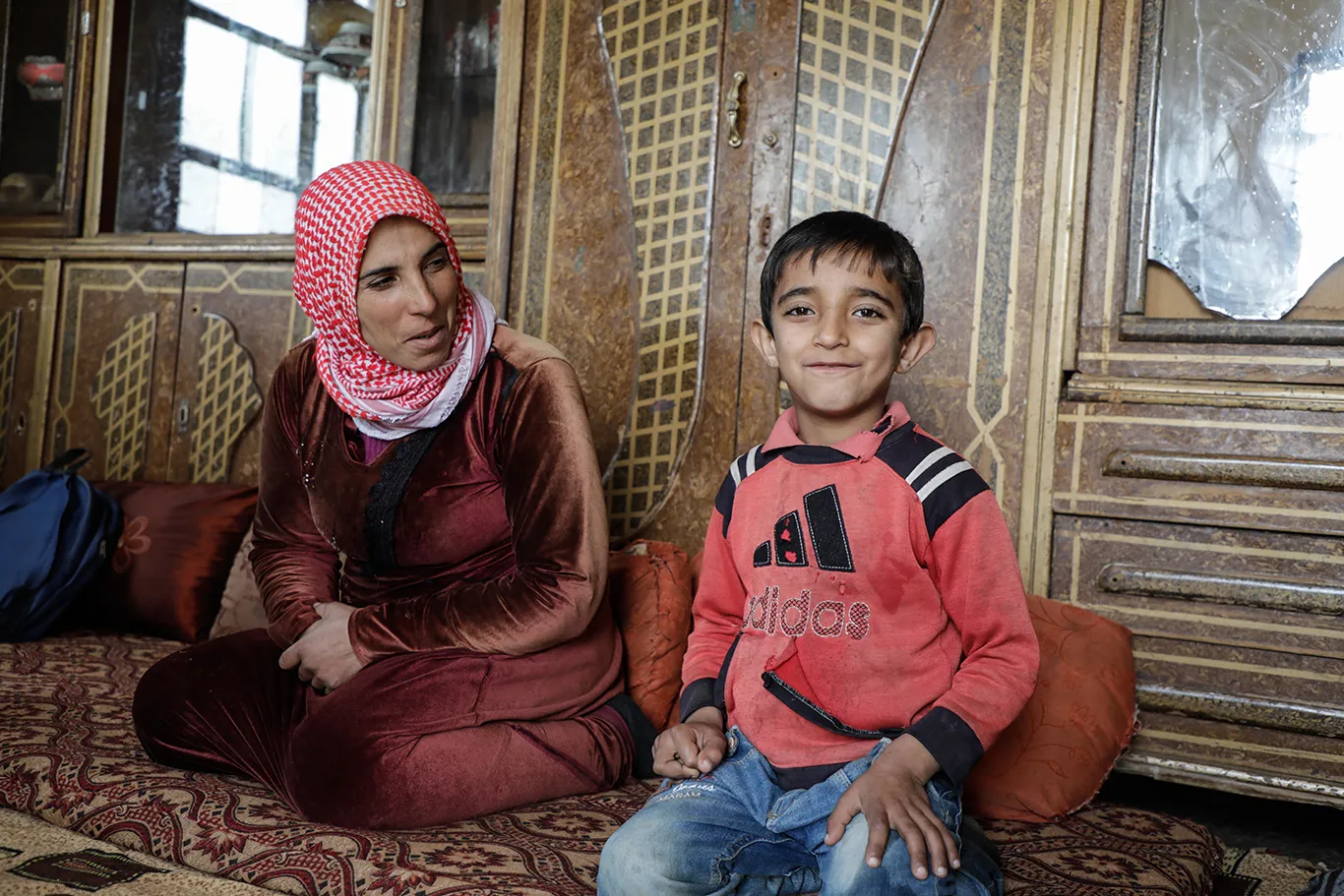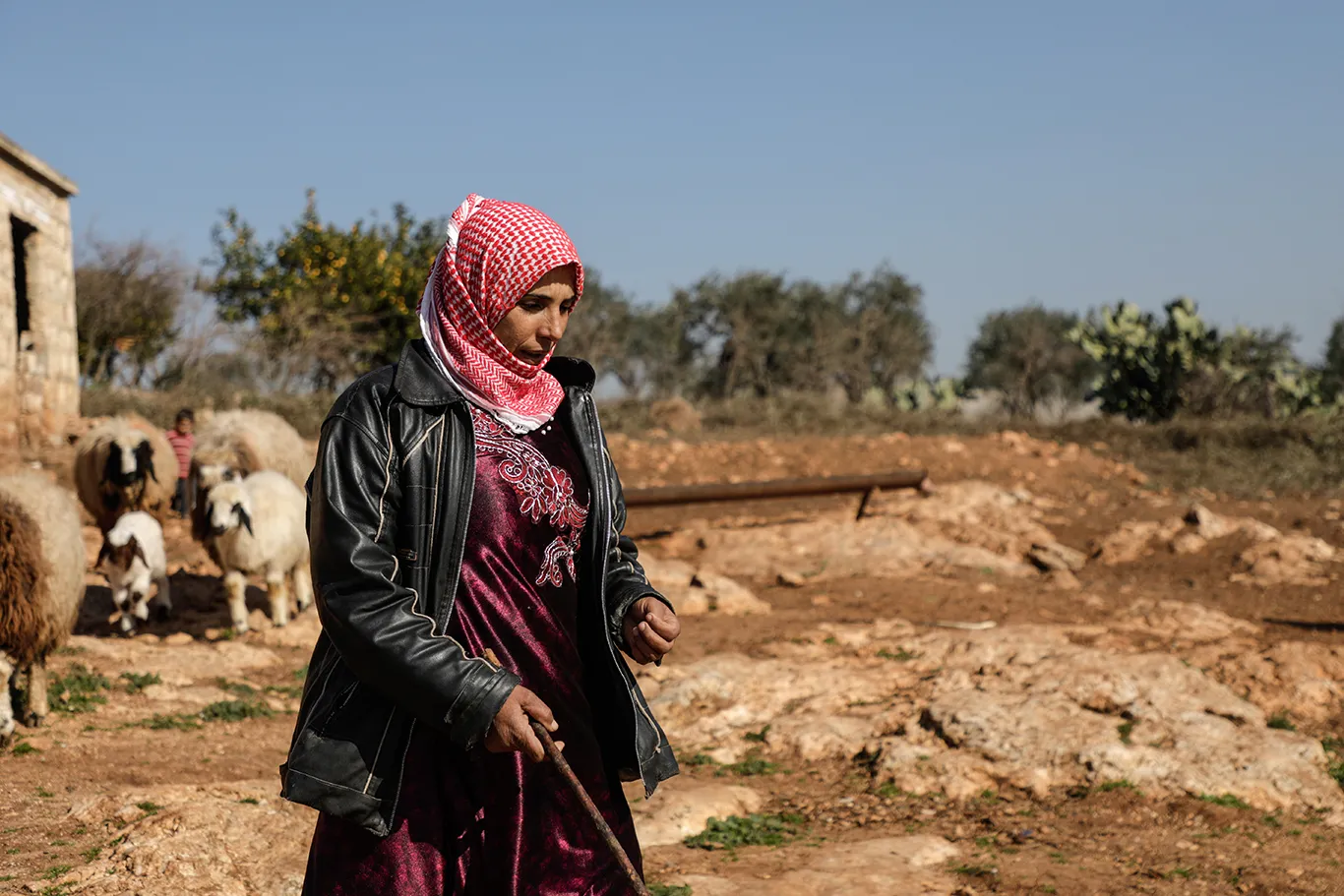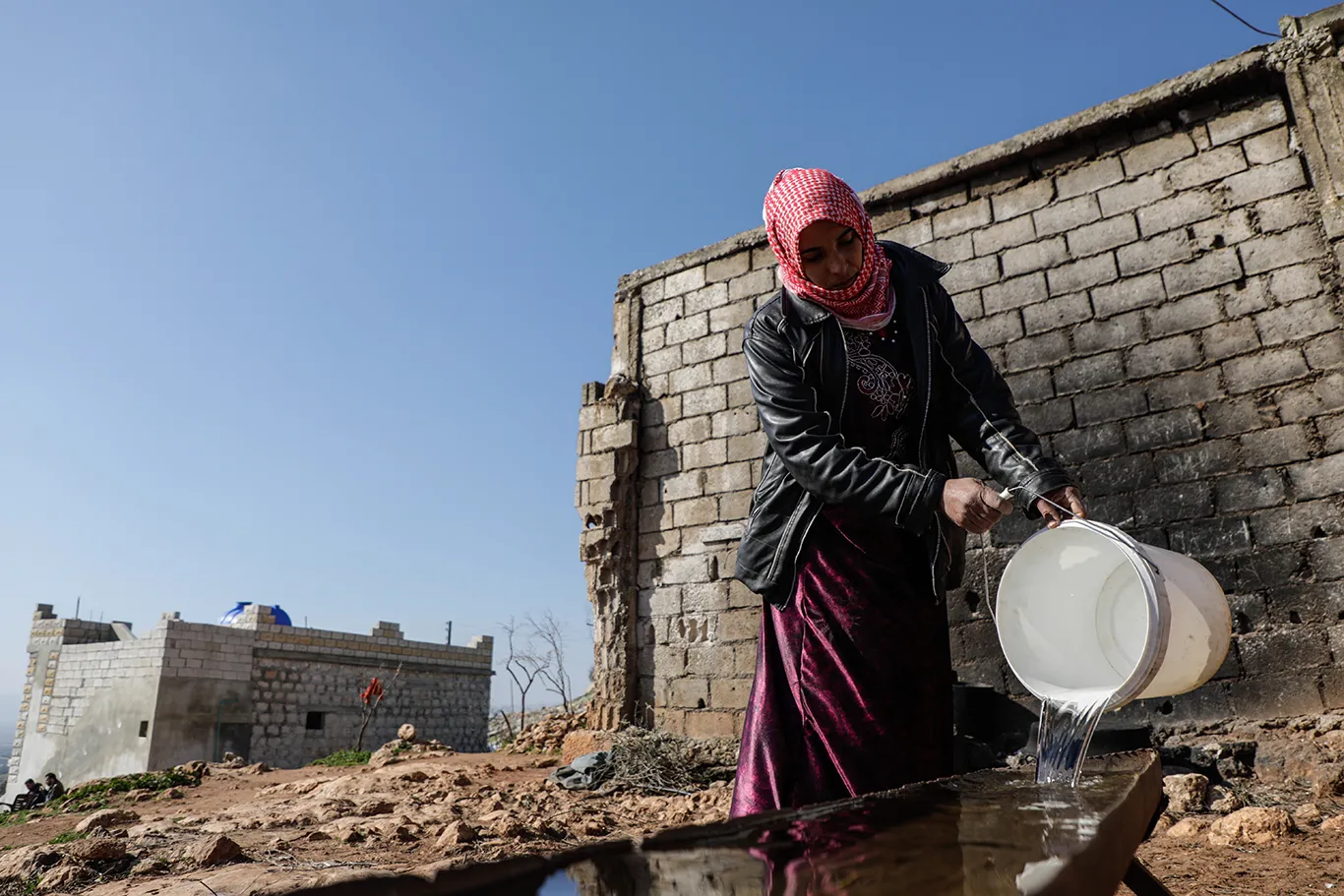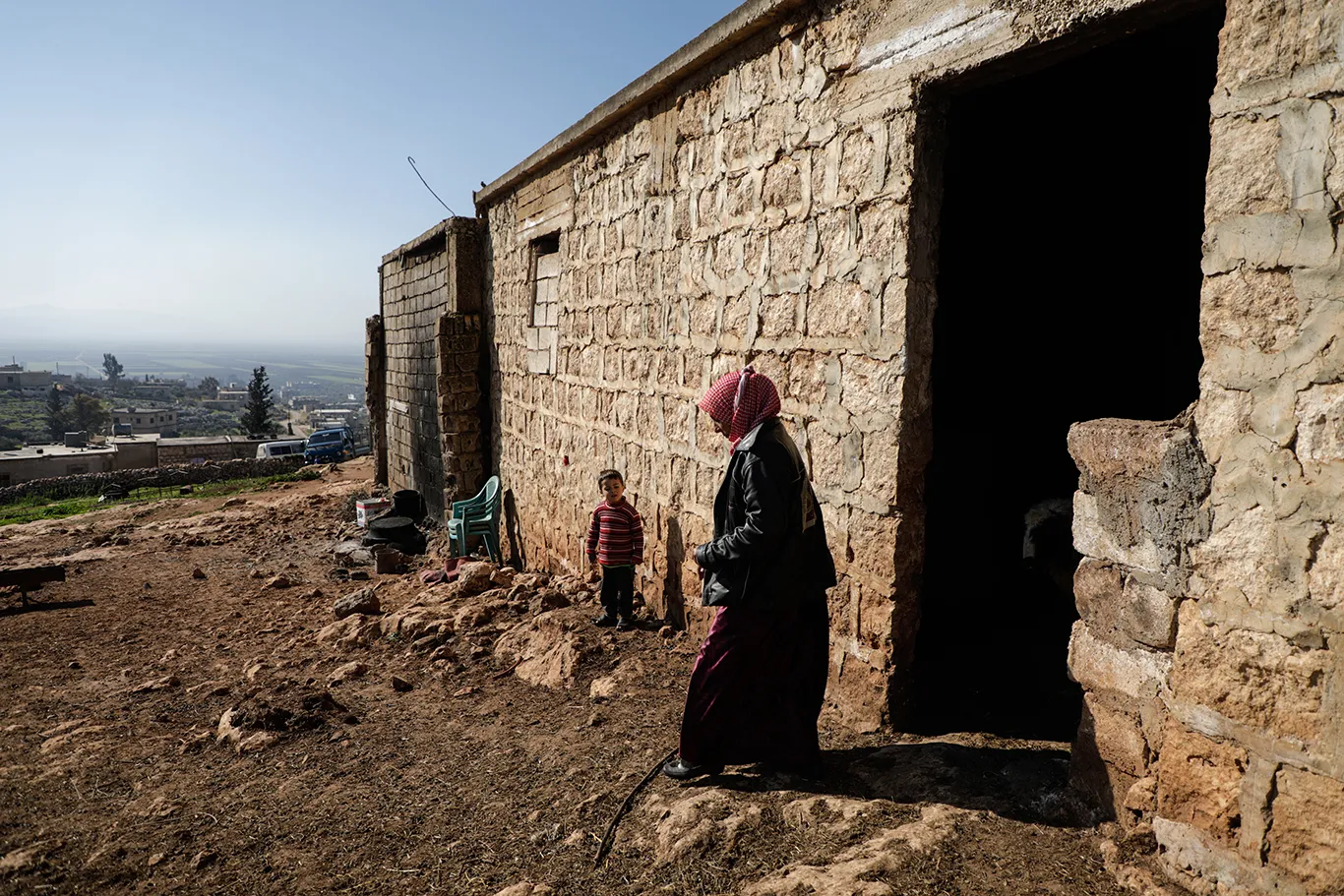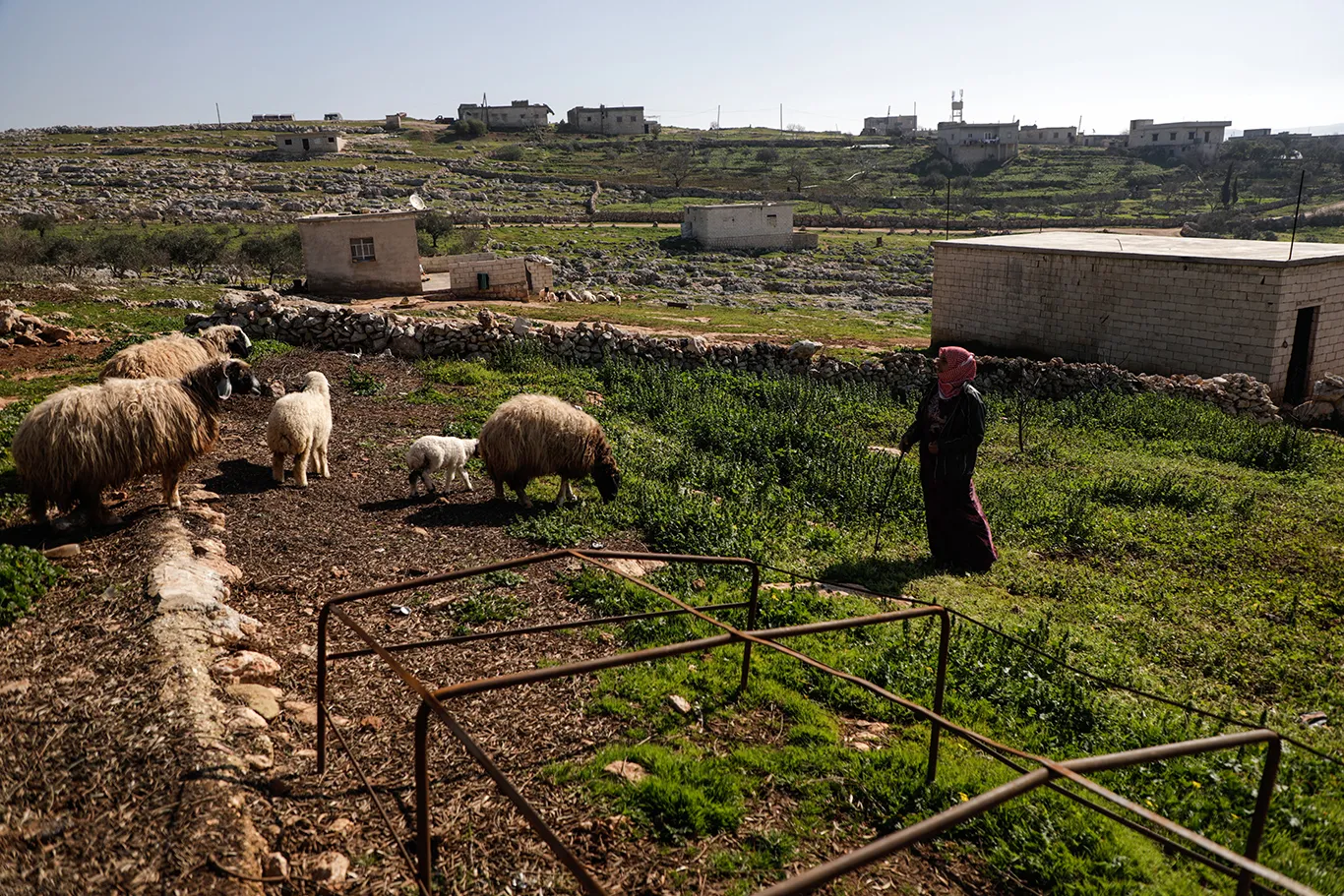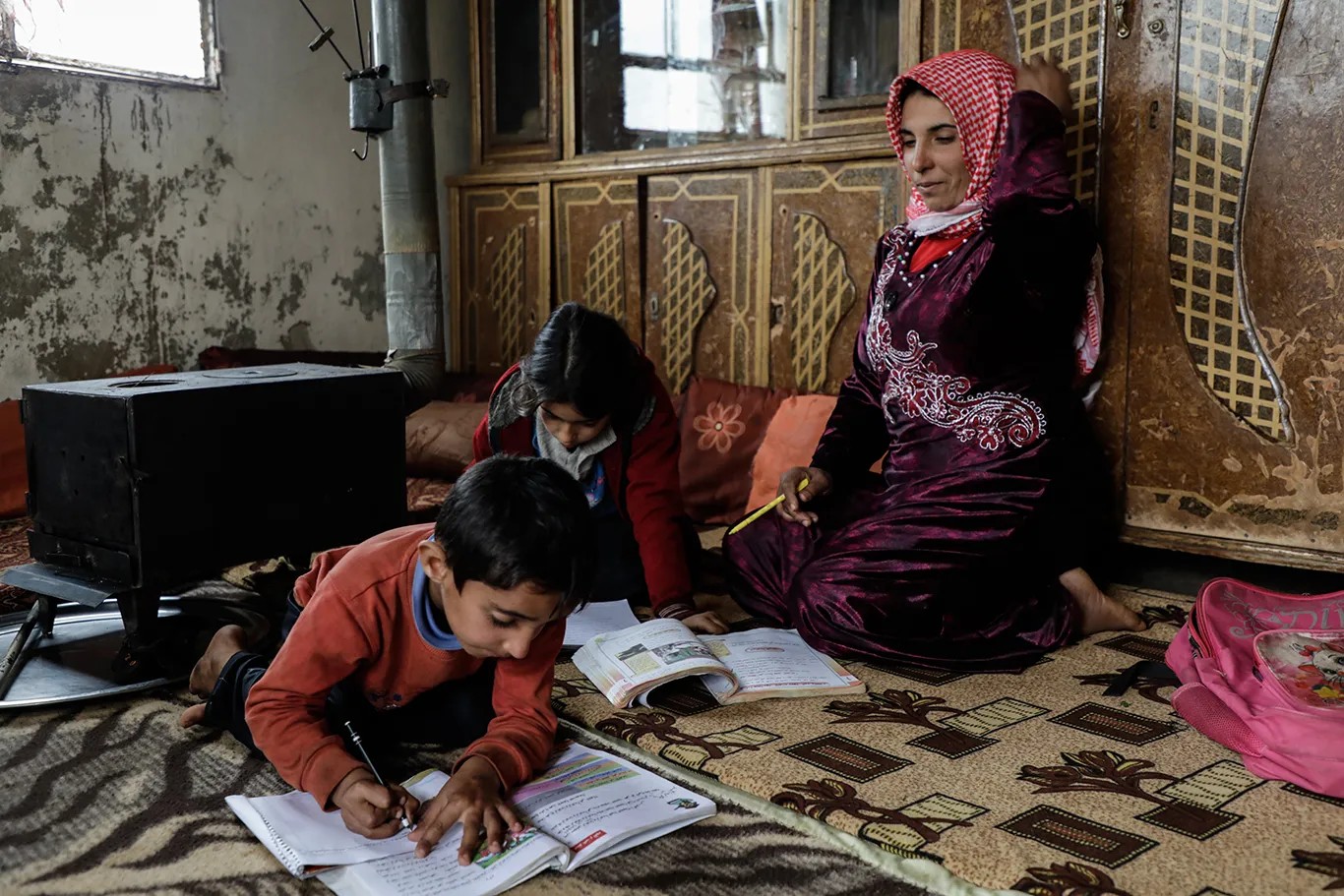Two months before the Syrian war started in 2011, Mariam’s* husband had a heart attack and died. She was pregnant at the time and gave birth soon after, just as the fighting began.
“He is turning eight now, like the war,” Mariam says.
Mariam was all by herself, struggling to survive and make ends meet now as a mother of four children. She found work on a farm and became the sole caregiver and breadwinner in her family. She earns the equivalent of 20 U.S. cents per day — barely enough for her and her children to survive. CARE’s support for widows, as part of the Syria Resilience Consortium, helped her to make a new start.

